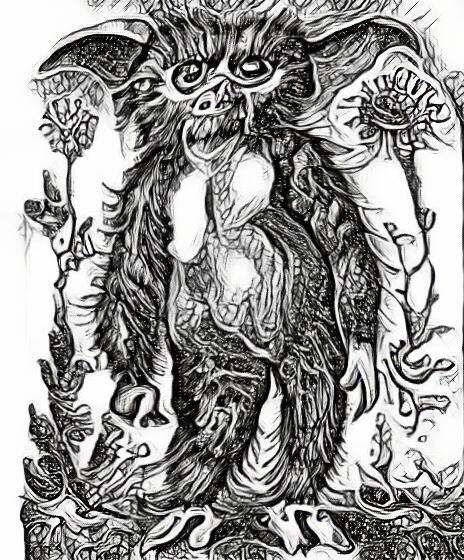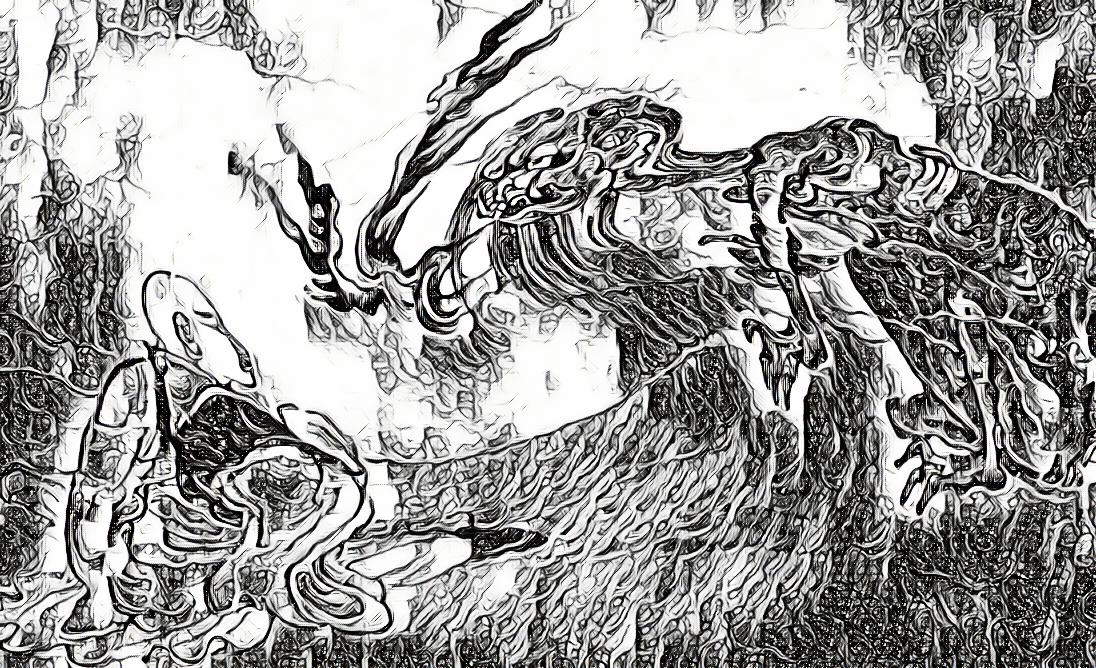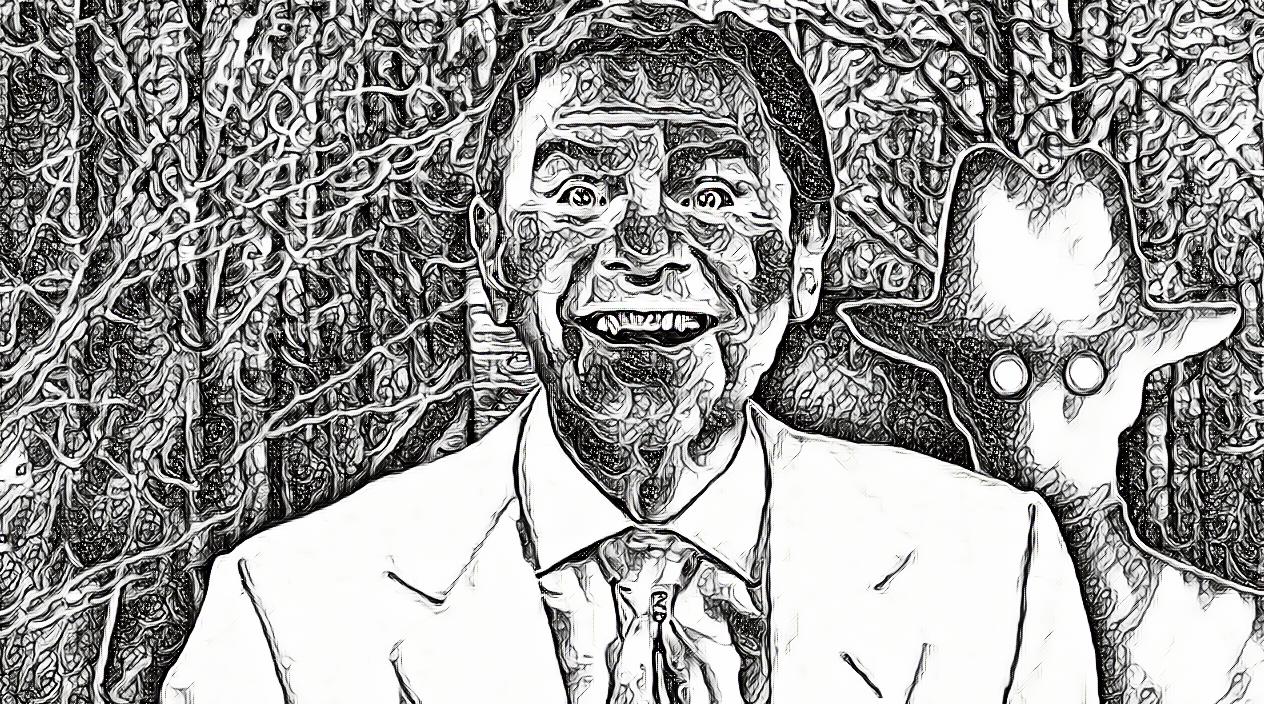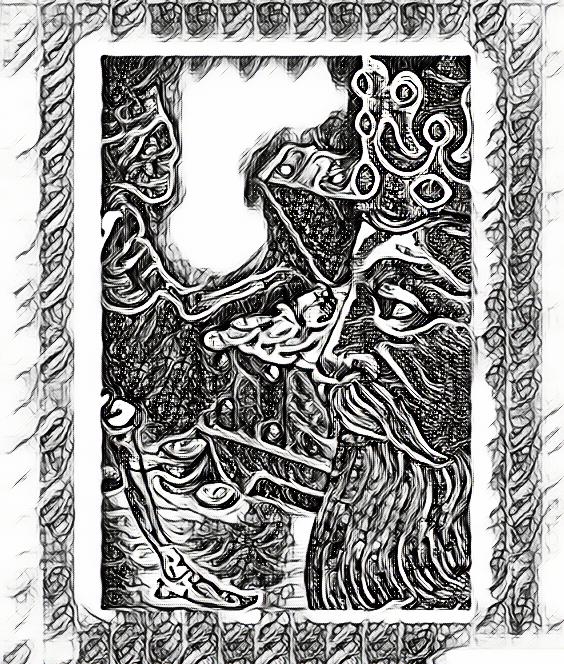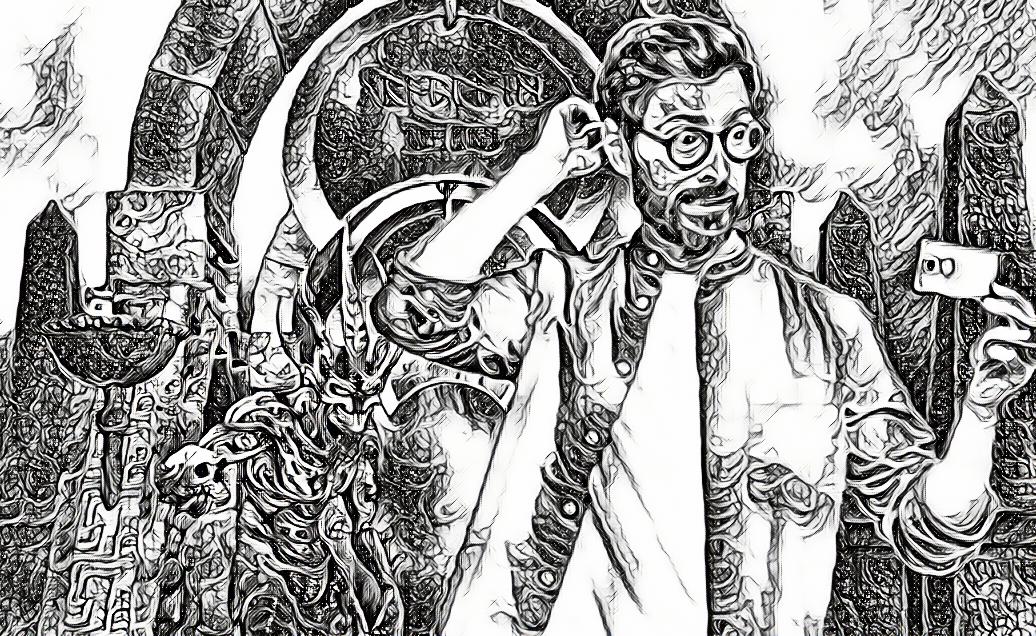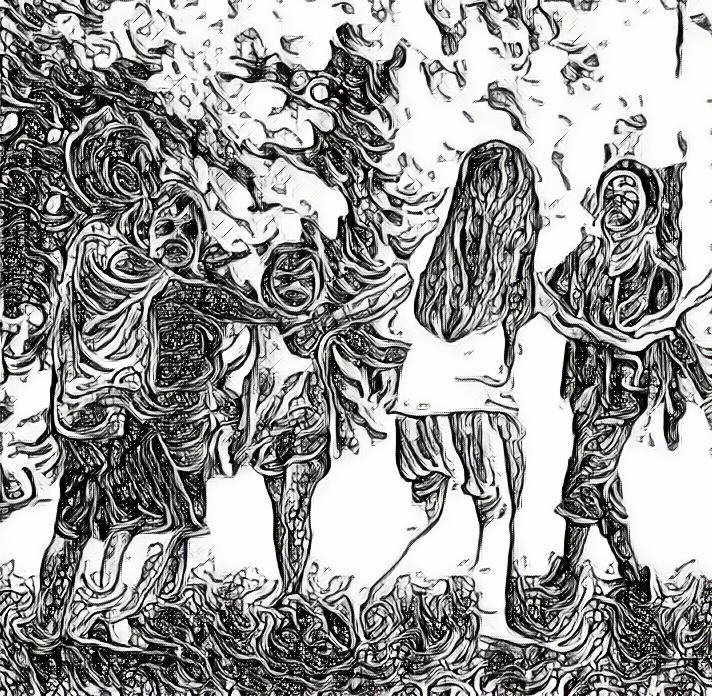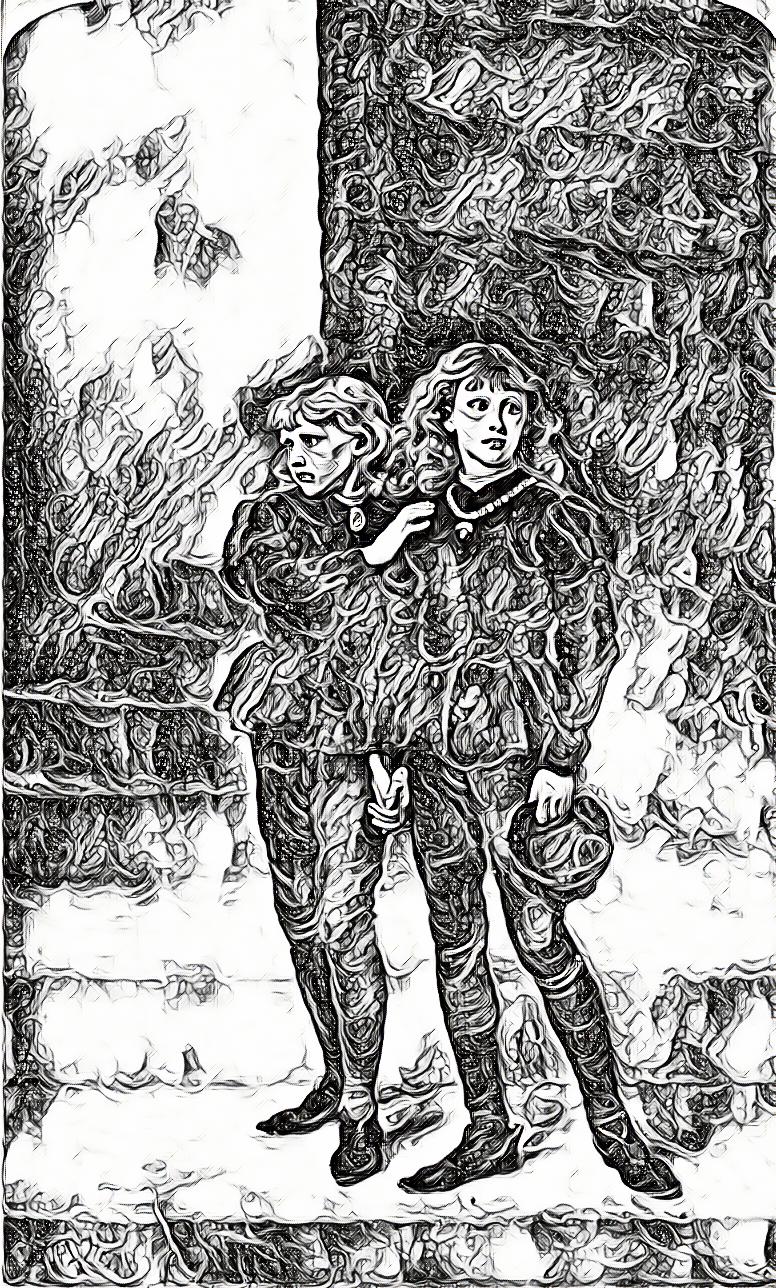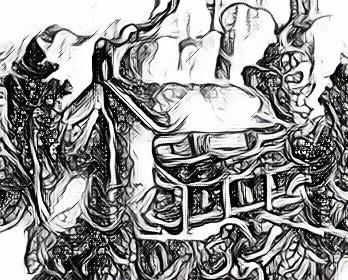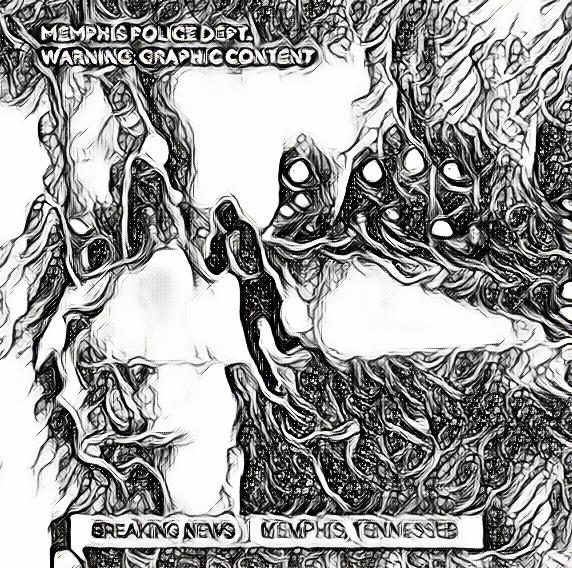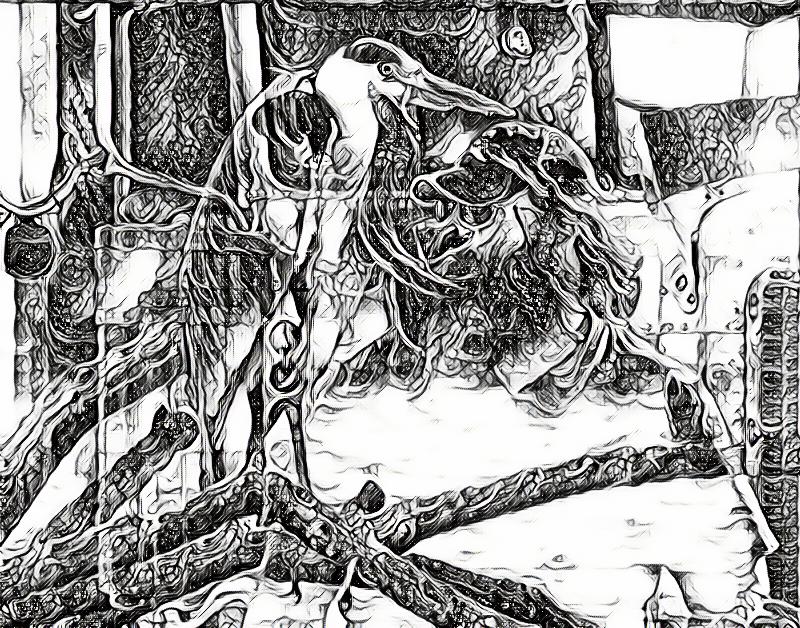In the far-off land of Kudova, a kingdom shrouded in darkness and despair, there ruled a king named Ludo. His insatiable greed knew no bounds as he mercilessly taxed his people, draining them of their hard-earned wealth until they teetered on the edge of starvation. The streets of the kingdom echoed with the cries of the impoverished, their voices drowned in the opulence of the king’s court.
One fateful night, as Ludo sat upon his gilded throne, surrounded by lavish riches, a strange little boy materialized before him. His eyes, as dark as the abyss, held a mysterious glimmer that sent shivers down the king’s spine. He wore tattered clothes that seemed to blend seamlessly with the shadows, and his voice carried a haunting melody.
“I bring you a riddle, O King,” the boy spoke, his voice a haunting whisper. “Solve it, and you shall be granted unimaginable wealth. Fail, and your kingdom shall crumble.”
Ludo, in his arrogance, laughed disdainfully at the boy’s words. “Challenge me if you dare, little one. I have faced greater tests than this.”
The boy’s lips curled into a mischievous smile, revealing teeth as sharp as daggers. He whispered the riddle, his words laced with an ancient power:
“When the moon casts its crimson hue,
And shadows dance, revealing the true,
Seek the crypt where the lost souls dwell,
And there the answer shall your fate foretell.”
Ludo’s heart skipped a beat as he pondered over the riddle. Fear gnawed at his soul, but his greed pushed him forward, beckoning him to seek the promised wealth. Oblivious to the supernatural forces at play, he became consumed by the desire for untold riches.
Driven by an insatiable thirst, Ludo ventured deep into the heart of the castle, guided only by the pale glow of the blood-red moon. The air grew heavy, suffused with an otherworldly energy that sent chills down his spine. Whispers of the lost souls echoed through the darkness, their voices a haunting chorus.
Finally, he reached a hidden chamber, its walls adorned with ancient symbols and eerie carvings. In the center stood a crypt, its stone entrance inviting yet foreboding. The air grew thick with the scent of decay, and the whispers of the restless dead grew louder.
With trembling hands, Ludo pushed open the heavy doors of the crypt. Darkness engulfed him, and the sound of his own heartbeat thundered in his ears. The crypt was filled with rows upon rows of coffins, each one adorned with a name long forgotten.
As Ludo stepped deeper into the crypt, a cold wind whispered through the chamber, extinguishing his torch. Panic gripped his heart as he found himself surrounded by the unseen presence of the restless dead.
In the pitch-black darkness, Ludo’s eyes strained to see, but to no avail. Shadows danced and flickered, taunting him with their elusive forms. The air grew icy, and a sense of dread filled his every breath.
Suddenly, a pale, ethereal light emanated from the depths of the crypt, casting an eerie glow on the skeletal figures that emerged from the darkness. Ludo’s breath caught in his throat as he beheld the ghastly sight. The skeletons, their bones creaking and rattling, moved with an unnatural grace, their empty eye sockets fixed upon him.
Though Ludo could not see the skeletons in the traditional sense, their spectral forms were revealed to him in the supernatural light that permeated the crypt. The shadows twisted and contorted, giving shape to the skeletal figures that sought to claim his soul.
Paralyzed with fear, Ludo stumbled backward, his hands trembling. The skeletons closed in, their bony fingers reaching out, as if eager to drag him into the realm of the dead. Their voices, a chorus of tormented souls, filled the air with haunting screams and mournful wails.
In a desperate attempt to escape, Ludo fought against the encroaching darkness, clawing his way towards the crypt’s entrance. But the supernatural forces were relentless, their grip tightening with each passing moment. The shadows seemed to come alive, wrapping around him like tendrils, pulling him deeper into the abyss.
As Ludo’s life force faded away, he finally understood the true horror of his actions. The boy’s riddle had been a trap, a punishment for his cruel and heartless ways. The supernatural forces that lurked in the crypt had claimed his soul, forever condemning him to wander the darkness, tormented by the echoes of his greed.
But as Ludo’s vision faded and his consciousness slipped away, a voice echoed through the crypt, a voice that revealed the true identity of the boy who had brought about his downfall. It was a voice filled with both sorrow and vengeance, a voice that whispered, “I am the embodiment of the souls you have wronged, the spirits of those you have oppressed. May your fate serve as a warning to all who dare to follow in your footsteps.”
And so, the The Kingdom of Kudova rejoiced, for the tyrant king had met a gruesome and fitting end. The people, once oppressed, rose up and reclaimed their freedom, vowing to never let the sins of Ludo be repeated.
The tale of Ludo’s demise spread far and wide, a cautionary tale whispered in hushed tones. The land of Kudova, once plagued by greed and suffering, found peace under the watchful eyes of its newfound rulers. And as the memory of Ludo faded, the echoes of his reign served as a reminder of the consequences that awaited those who dared to exploit the weak and forsake compassion. The boy, lingering in the shadows, watched over the kingdom, ensuring that the lessons learned from Ludo’s downfall would never be forgotten.
